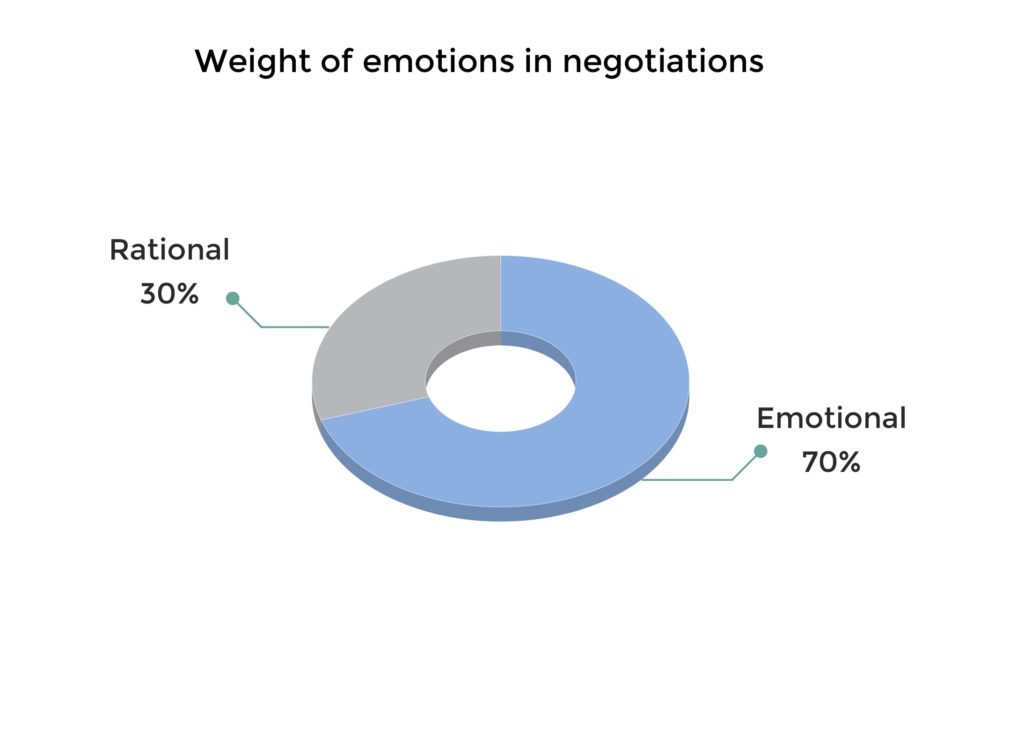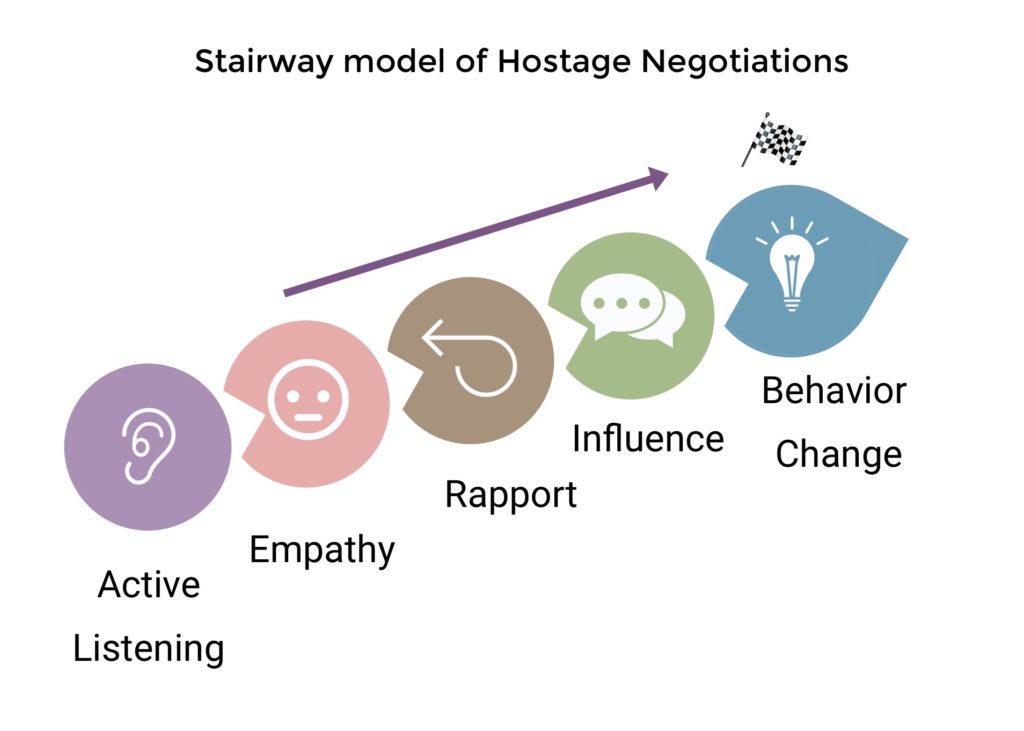
Everything is negotiable. Whether or not the negotiation is easy is another thing.
– Carrie Fisher, “Princess Leia”, Star Wars
Businesses are rational while humans are emotional. That’s it. Let me elaborate.
It seems logical to make rational decisions in business. It makes sense to conduct all areas of our business rationally. So when it comes to negotiating a business contract, resolving industrial dispute or conflict, or even laying off the employee who served the company for 35 years, we do the same thing: approach rationally. And, we fail miserably in most situations.
Stating “I can prove with numbers and facts that you are wrong and I am right,” would work if people were completely rational. But that is not the case. Roughly 70% of our decision making is influenced by our emotional side and only 30% by rational side. It gets even worse when we are filled with emotions. The rational side is completely shutoff and our decision making is entirely based on emotions.

Moreover, owing to the existence of legal system and case law, and an easy alternative to “just fucking turn this over to the lawyers,” most business negotiations pretend that emotions don’t exist. And, that makes things harder or leads to avoidable legal expenses.
This is why it is important to approach negotiations with an emotional angle and first defuse any negative emotions and sow the seeds of positive emotions, if we are to have any decent chance of generating the outcome we desire. The emotional side is so important that FBI’s hostage negotiation unit came up with the Behavioral Change Stairway Model which goes as follows:

- Active Listening: Listen to their side and let them know you are listening. Get to know them.
- Empathy: Acquire an understanding of their emotional state and where they’re coming from. Gather information.
- Build Rapport: Let them know that you understand their feelings. Once they are convinced that you understand their feelings, they will start to trust you.
- Influence: Once you have gained their trust, they will let you work with them on the problem they are facing. You can now suggest alternative course of actions.
- Voluntary Behavioral Change: Use persuasion, backed by information gathered earlier to persuade them to do the right thing or take the action you want them to take.
Initially, these techniques were used to just buy time from the criminal holding a hostage so that the SWAT team had a chance to understand the environment and deploy. But, lately it has been discovered that these techniques are so powerful that use of force is not needed at all. That is the power of addressing emotions.

If you notice, the first three are about addressing the emotional side and last two step are about rational bargaining. Unfortunately, in business negotiations, most people skip the steps 1-3 and start at step 4 and 5. There really is no foreplay. They skip straight to it. Doesn’t work in lovemaking. Doesn’t work in negotiations.
The behavior of terrorist, hostage takers or invaders defies logic, as they usually do not care for their own safety or that of others. It is hard to negotiate with someone who doesn’t care about their life. But, everyone cares about something. There is a reason they got out of bed, out on their clothes and are here in an inclement situation risking getting shot, instead of just swallowing a cyanide pill and having a relatively peaceful death.
Everyone cares about something. This is universally true. True even in business. So, one of the prime objective of the first three phases in that FBI model is to gather info and find out what they care about. Where do their emotions lie. Because, this will be your leverage. This is the carrot you will be able to wield in front of them to get the outcome you desire.
Take away: Start with emotions. The rest will follow.